Take the time for lunch
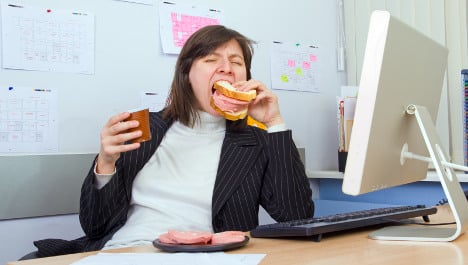
For Janine Marsh, editor of The Good Life France, it’s her attitude towards meal times that has altered the most since moving to France.
“During my 15-minute lunch ‘hour’ in London, I’d rush to do my shopping, pay cheques into the bank, phone the utility services, etc,” she recalls.
In France, however, time off for lunch is sacred.
“For two hours, banks and shops close. Road workers, doctors, butchers, bakers, candlestick-makers simply va va voom at lunchtime to the restaurant of choice.”
Any tips? Visit your local council office before the lunch break, advises Janine, if you want to get anything important done.
France changes the way you drink

Photo: BluEyedA73/Flickr
There may be increasing fears over the rise in binge-drinking in France, but there’s still a big difference between the British and Gallic drinking culture, according to “A Year in the Merde” author Stephen Clarke.
“I now drink much less than British friends, who are capable of sinking twice as many pints as me during an evening. France just isn't as much of a binge-drinking culture (though it's now taking root here),” says Clarke.
Colin Randall, editor of France Salut and the former France correspondent for the Daily Telegraph, has also noticed a change in his drinking habits.
“I think nothing of having something from the trolley on the train into London from airports but never even think of looking for a pre-flight bar in France,” says Randall.
Piu Eatwell, the British expat author of They Eat Horses, Don't They, agrees.
“A decade of Gallic influence means that I now almost never drink spirits such as whisky or gin, and certainly not as an ‘apéritif’. The only pre-dinner drinks I drink now are Champagne or Kir,” she says.
“I pretty much exclusively drink wine, and only ever accompanied by some sort of food (generally at meal times, or with an apéro).”
Quality over quantity
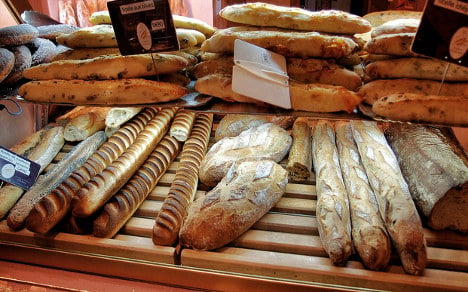
Photo: Monica Arellano-Ongpin/Flickr
Paris-based American writer Lindsey Tramuta, who runs the Lost in Cheeseland blog says she’s learned to value quality above all else.
“My base expectations on quality – ingredients, craftsmanship, experiences – have gotten higher since living in France these last nine years.
“Surrounded by artisans in everything from food to home goods who themselves place a premium on quality, has indeed influenced my own consumption habits. Buy less, buy better.”
Author Stephen Clarke says he’s abandoned the weekly supermarket shop since moving to France.
“I go food shopping every day rather than filling up a supermarket trolley and trying to live off the contents for a week.
“Sometimes I go out and buy fresh bread twice a day, straight from the oven. My whole idea of freshness has changed.
Develop a love for debate

“Whether at the dinner table, among friends sharing drinks or in the office canteen, French people never miss an opportunity to debate politics, current events or foreign affairs (and all matters personal in between),” says writer Tramuta.
And, usually, this is no bad thing, she claims.
“And while discussions can get heated, I respect the edifying effects of a little verbal jousting. It certainly motivates me to stay informed and on my toes!”
Home-cooking
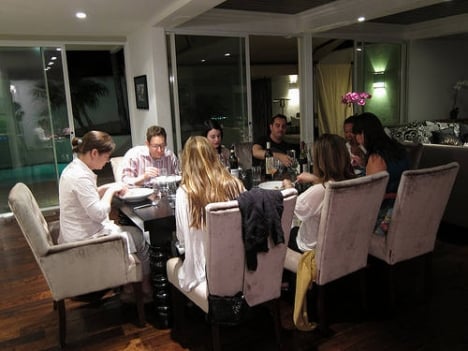
For Colin Randall and his French wife, who divide their time between England and the south of France, it’s the restaurant culture that sets the two countries apart.
“Our eating and drinking habits change the moment we arrive in London or back in France,” he says.
“London life, especially if time there is short, can turn into a succession of meals out – admittedly Indian, Thai, Vietnamese and even French rather than English – because we have become convinced that while you almost always eat better as guests in France, Britain now has the distinct edge with restaurants.
“Maybe, in France, we are victims of location, part of the catering trade’s captive market on the Cote d’Azur, but we end up feeling disappointed or cheated eight times out of ten, whereas all our French friends and relatives are streets ahead of anyone we know in the UK when it comes to home cooking.”
Less work more life
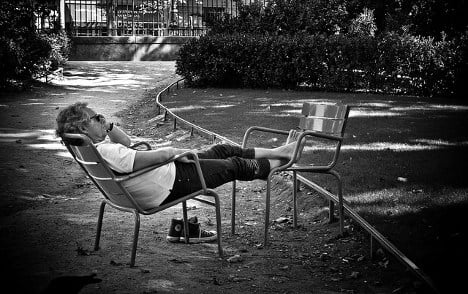
Photo: Andreas Bloch/Flickr
Paris-based author Matthew Fraser can account for the fact that living in France will bring about a significant shift in work-life balance
“I’ve shedded the workoholism of my previous career-obsessed existence and now appreciate with epicurian relish the pleasures of each moment,” he says.
“Life in France places you happily in the present tense, unlike in anglo-Protestant countries where everything is driving madly towards the future.
“In Paris, when you are enjoying a bottle of claret in a restaurant with friends, or walking your dogs along the Seine, that moment suffices in itself.
“The quality of life argument for France is very compelling. I think it’s the reason so many expats stay. It makes the high taxes worth it.”
Knowledge of red wine

While many Anglos would have enjoyed a glass or five of wine before coming to France, many of them (including the editor of the site) knew very little about it apart from it came in three forms: red, white and see-through pink.
But once you're here you're almost forced to learn about it, perhaps because a waiter will ask you what kind of wine you want rather than just “big or small one”.
Whether it's learning the correct way to open a bottle, or spotting a Bordeaux from a Burgundy by the shape of the bottle, you start soaking up knowledge.
“Living in France means that, by a mysterious process of cultural osmosis, you become quite knowledgeable about wines,” says Fraser.
“You don’t realise it when you’re here because everyone in France knows a good Bordeaux from a bottle of plonk.
“But when you go up to London, or find yourself in New York, you quickly realise that most people don’t actually know their wines. And they are terribly impressed when, in a restaurant, you scan a wine list and select a very decent Haut Médoc from an excellent year.
Take a train not a plane

For The Local France's editor Ben McPartland, living in France has taught him to avoid planes and stick to trains when possible.
Going on holiday in Europe from the UK means you are pretty much obliged to get on a plane, but in France there is another, far better option.
“Why risk the unreliable RER B to Charles de Gaulle airport to then be herded around from one queue to the next before you squeeze into your tiny seat, when you can sit in the bar of a TGV while it hurtles through the spectacular countryside to the Alps, the south coast or even northern Spain,” he says.
“Holiday destinations are now chosen on the grounds of whether you can get there by TGV.”

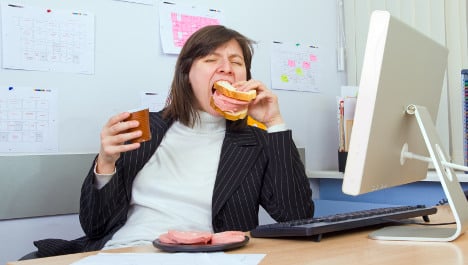

 Please whitelist us to continue reading.
Please whitelist us to continue reading.
Member comments